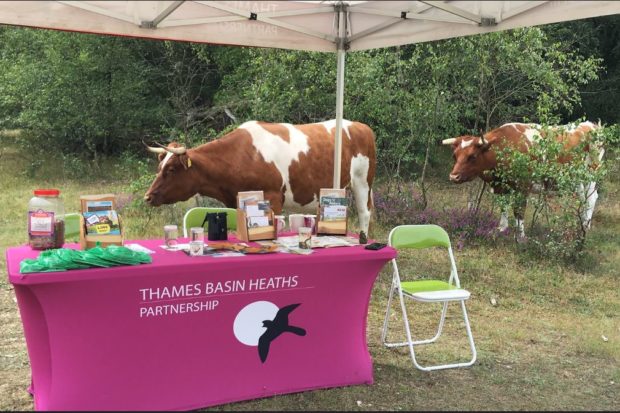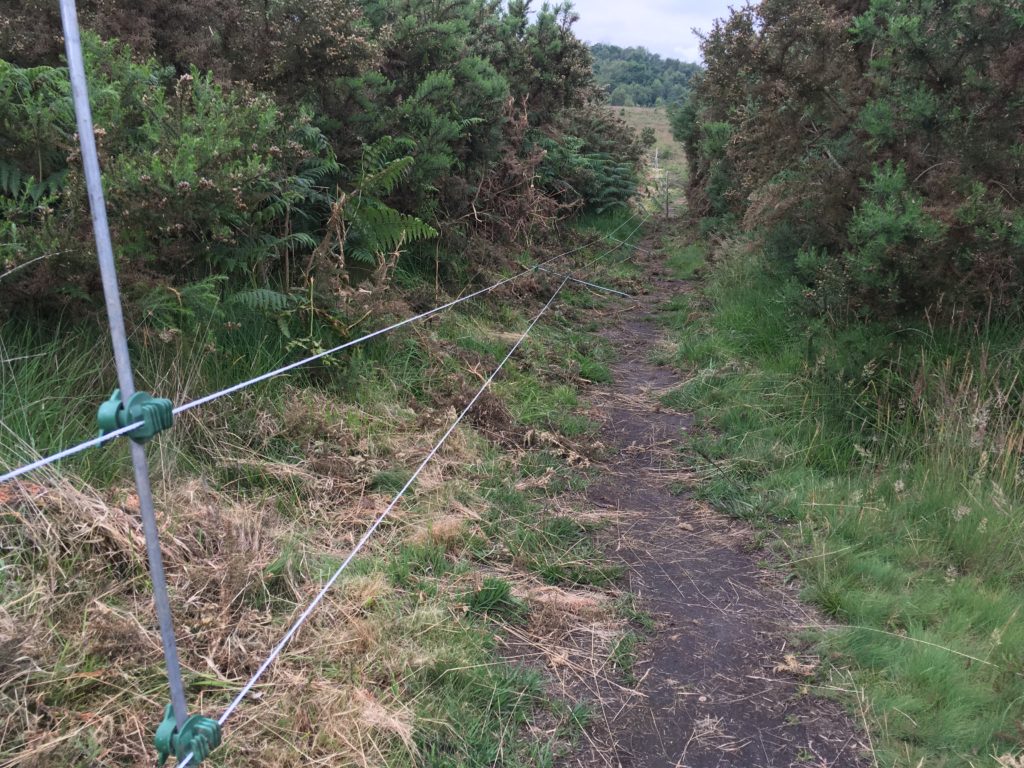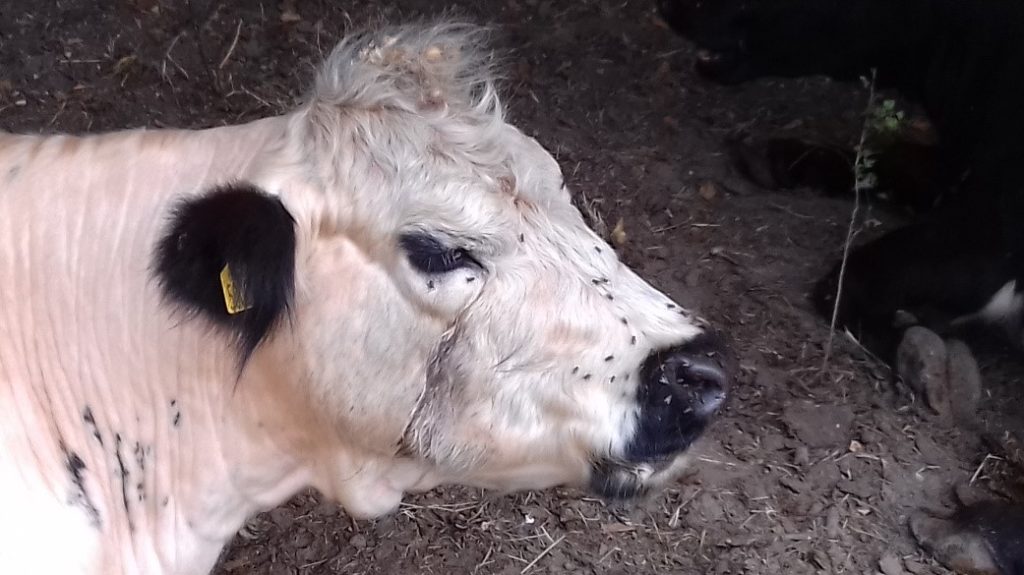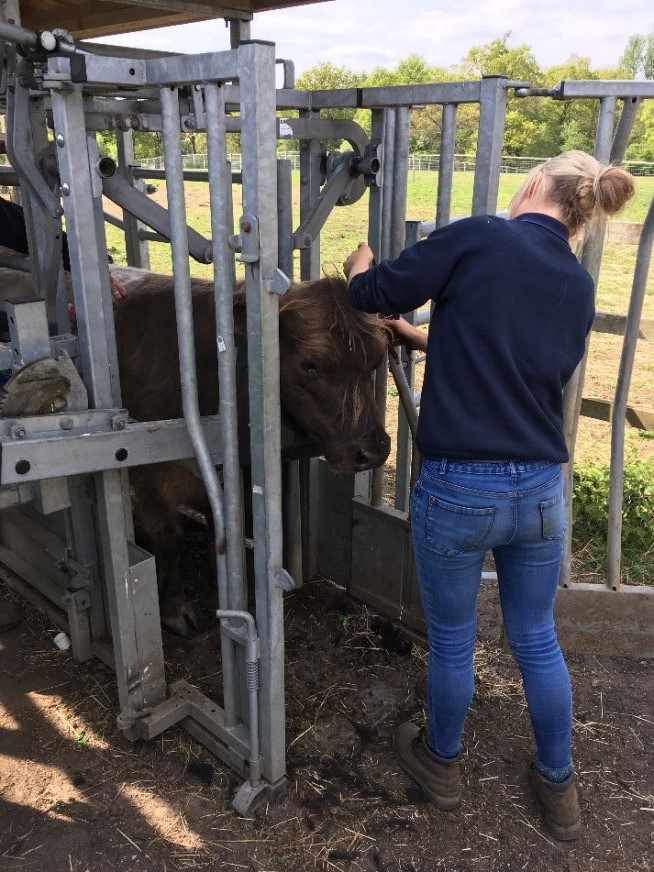Looking after the welfare of grazing animals

It’s without doubt that healthy and happy animals are always best for conservation grazing and anyone using livestock to assist with managing landscapes has a legal obligation to ensure this is the case.
The ‘Five Freedoms of Animal Welfare’ code states that animals must have:
- Freedom from hunger and thirst
- Freedom from discomfort
- Freedom from pain, injury, or disease
- Freedom to express normal behaviour
- Freedom from fear and distress
Each grazing scheme has a risk assessment based on this code, ensuring sources of potential risk to animal welfare are eliminated or, at the very least, kept to a minimum.
Regular stock-checking is crucial
Each herd of grazing animals is regularly checked to catch and deal with any health problems before they get too serious. Depending on the risk assessment for a particular habitat or grazing compartment, these checks may be done more frequently. For example, dense, prickly scrub can cause eye damage, leading to infections.
If not dealt with immediately, flies might transmit the infection to other individuals in the herd. Daily checks will catch this sort of problem early and, if necessary, the animal will be transported off-site, and given necessary treatment to eliminate the problem quickly.
Forage assessment and water availability
A certain level of hunger is beneficial, as it forces animals to look for food, and keeps them fit in the process. In certain circumstances, animals may be worked harder to achieve desired conservation objectives.
An experienced stock-checker will assess the amount of forage left, and how long it will last given the stocking density (the number of animals and size of area available to them). If the herd’s welfare and condition is likely to deteriorate, the checker will recommend animals are promptly moved to another location.
Levels of standing water availability are also assessed, and any mains-fed water troughs checked to ensure they are topped-up and in full working order.
Perimeter fencing must also be inspected to ensure cattle are safely contained within the grazing compartment. Occasionally, fencing is vandalised, increasing the likelihood of livestock escaping, putting animals and people at risk. This fencing must be fixed immediately. There is nothing more inconvenient or stressful for all than escaped livestock!

Sabotaged electric fence lines, increasing the chances of livestock escaping if not seen and fixed immediately
Periodic health checks
It takes a small team of experienced staff and a lot of effort to herd a group of animals together so they can be checked individually at close quarters in a handling system. This is the ideal moment to carry out general health checks on each animal and often happens before they are put out to graze on a reserve.
Some regular tasks include:
- Treating sheep for fly strike – keeps them safe from this pest over warmer months.
- Feeding a concentrated mineral pill to cattle – keeps them strong and healthy over winter.
- Nail-clipping, and general foot-cleaning – done before animals are put out to graze on a reserve.
- Foot bath for sheep – to tackle foot rot that can take hold in moist or waterlogged conditions.
- Tuberculosis test for cattle – depending on the risk classification of the area, this must be done at least once every 4 years.
Would you like to help out?
If you are interested in volunteering to help with livestock checking, then please contact any of the following:
- For Wildmoor Heath and Broadmoor Bottom email jodycornfield@bbowt.org.uk
- For Hampshire & Isle of Wight Wildlife Trust including Caesars Camp near Farnham, Long Valley, Velmead Common, Gelvert Bottom, Pondtail, Bramshott, Foxlease, Ancelks Farm, Hook Common, Bartley Heath, Greywell Moors, Bassetts Mead and Longmoor – call Guy Mason on 07546 443485
- Surrey Wildlife Trust have put recruitment of livestock checkers on hold for now, but as soon as this changes, we’ll let you know. They graze across Surrey including at Sheets Heath, Brentmoor & Folly Bog, Bisley & West End Commons and Barossa
Warden Rupert
<< Read part two


